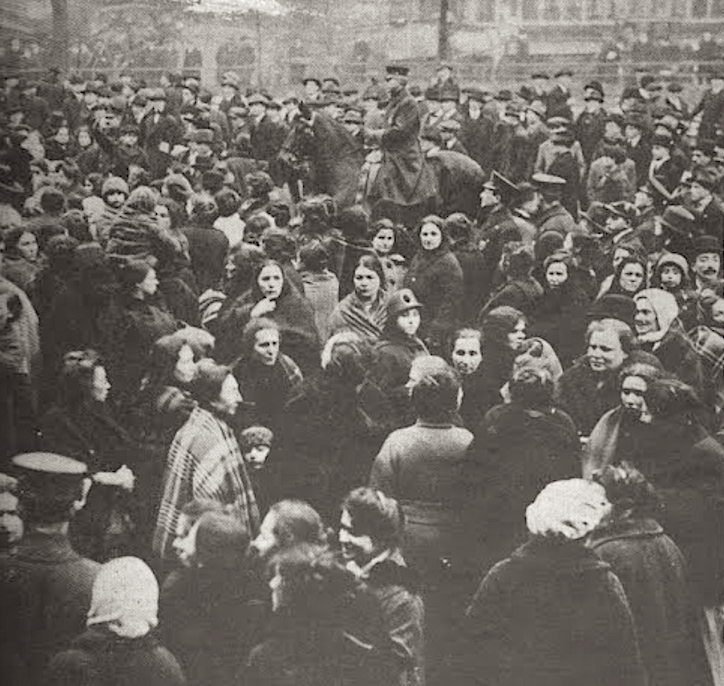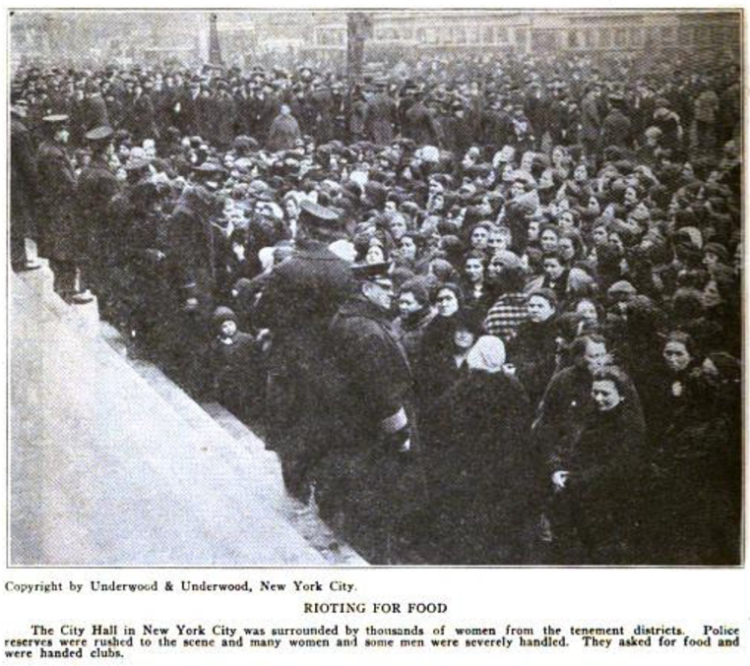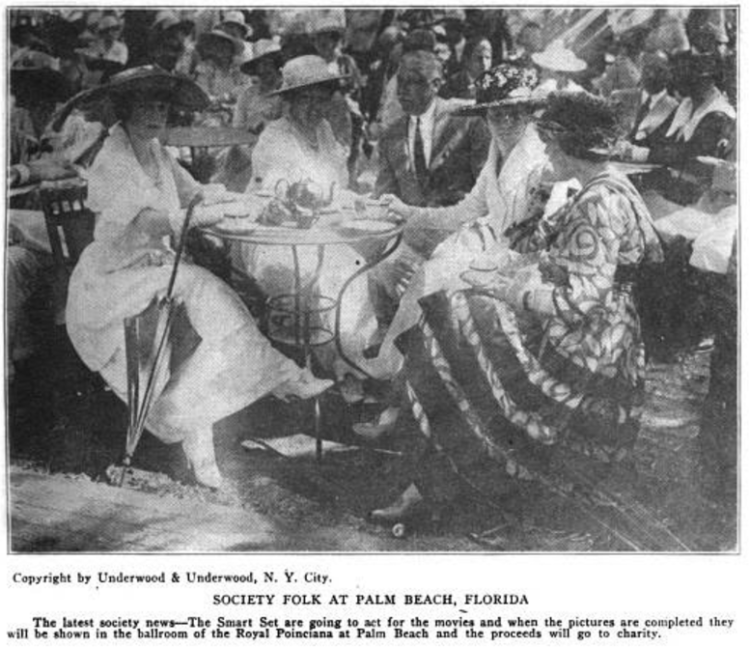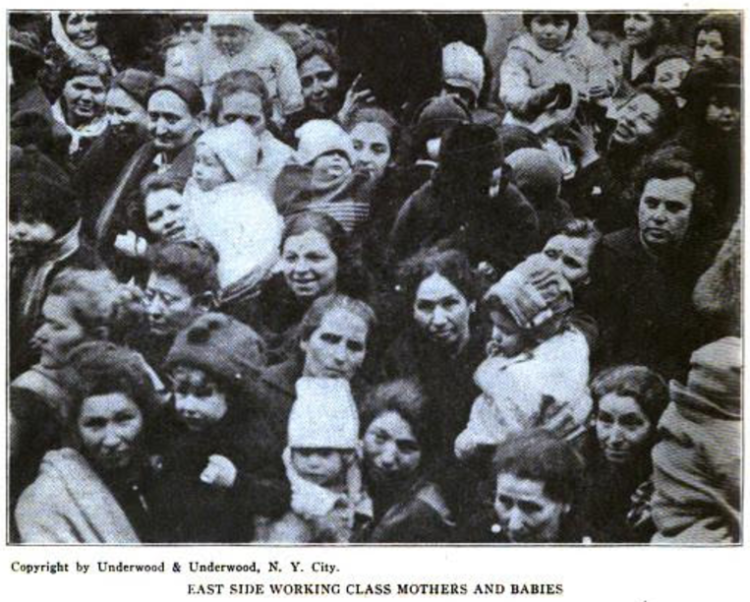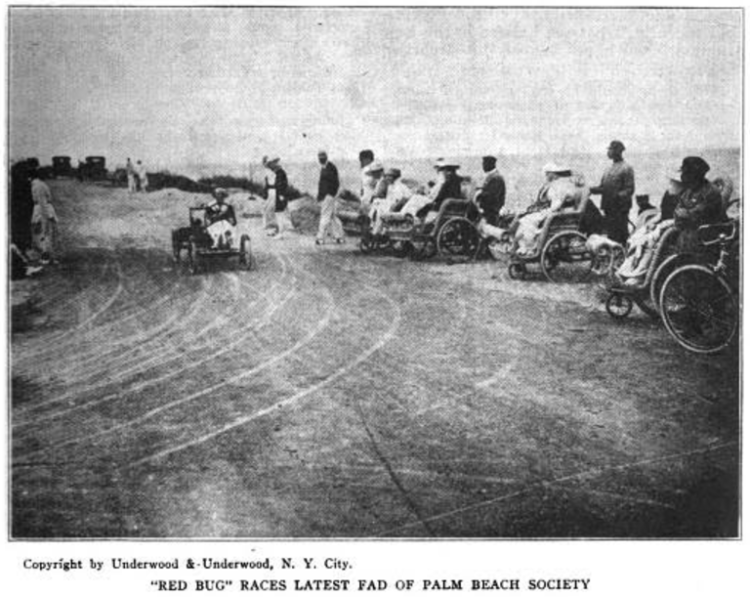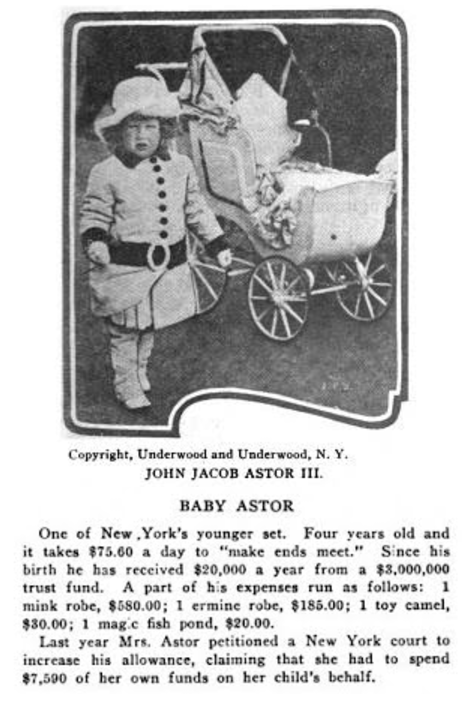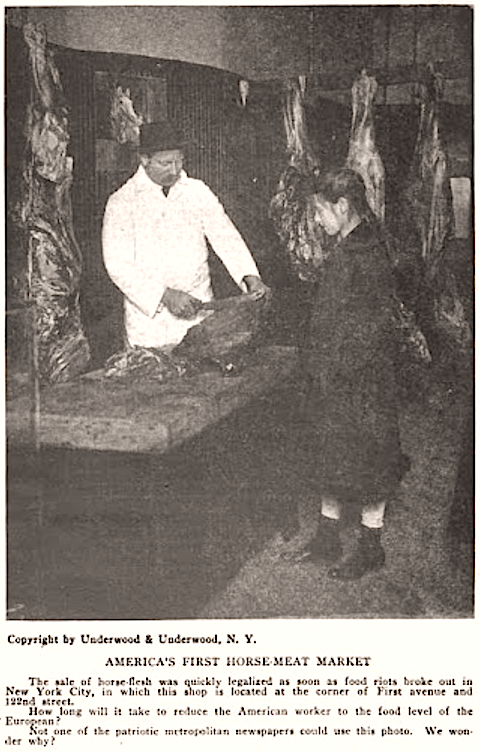You ought to be out raising hell.
This is the fighting age.
Put on your fighting clothes.
-Mother Jones
~~~~~~~~~~~~~~~~~~~~~~~~~~~~~~~~~~~~~~~~~~~~~
Hellraisers Journal, Monday April 9, 1917
The Review Reports on Failure to Starve in an Orderly Manner
The Cover of the International Socialist Review for April 1917:
Leslie Marcy of the Review Reports on Food Riots:
FOOD RIOTS IN AMERICA
-By LESLIE MARCY
DID you ever notice how quickly public officials and the newspaper owners and big capitalists wake up when the working class resorts to any kind of mass action?
Day in and day out they may read articles or print statistics on crop failures, extraordinary food exports, corners on food products, the phenomenal over night rise in prices, or the actual short age of food in working-class districts with perfect serenity. They may even regard the fact that the children of the poor are starving with equanimity. But when the hungry workers arise and seize and burn and destroy and loot, Their Honors, the Mayors, Boards of Trade, newspaper editors and estimable people generally grow alarmed and say that something must be done.
And be very sure that if these public demonstrations on the part of the working class continue and increase, some thing is done. During the past month “food riots” have aroused much disquiet everywhere in the breasts of the reputable folk. One day 3,000 hungry women of New York’s lower East Side attacked the small grocery stores, shops and carts, seizing all they could lay their hands on, burning and destroying the carts and booths of those whom they believed were robbing them. On a Saturday evening 4,000 hungry women, with babies in their arms, besieged the doors of the palatial Waldorf Astoria demanding “Bread.”
In Philadelphia on February 21st, one person was killed and nine wounded when wives and mothers with their children, thronged the streets demanding bread and work to keep their children from starving.
Again in Williamsburg, Penn., housewives who went out shopping for the evening meal at four o’clock became desperate at their inability to purchase the necessities of life and attacked provision stores and pushcart peddlers, while folks on the roofs of tenement houses threw flaming missiles of oil-soaked papers and rags upon the dealers’ wagons. The city authorities declared the situation would be utterly beyond their control if the fear of a food famine was not dispelled. One woman said:
I have five children, who have not eaten today. I have not had food for twenty-four hours. My husband is a tailor, who gets $8.00 a week, and we are starving. Today I could not buy a loaf of bread.
All food emporiums were strongly barricaded and put under police guard. Martial law was declared in the Philadelphia food shopping district.
Immediately from one end of the country to the other municipal authorities called upon Congress to investigate. The president of the New York Board of Trade is reported to have said that unless the railroad congestion was relieved and thousands of cars loaded with provisions for Europe and awaiting boats for shipment were speedily released for shipping food to the East, the food situation there would assume more grave proportions than the possible war with Germany.
When informed by East Side housewives that their children were “starving to death by hundreds” because of the high cost and scarcity of food, Mayor Mitchel, of New York, promised to place before the Board of Estimates their plea for an appropriation of $1,000,000 to be spent in providing food to the poor at cost.
[Said a member of the I. W. W. speaking at one of the hunger meetings:]
There is no food shortage at the Waldorf Astoria, and no shortage of food nor of any of the other luxuries of life at the famous wintering resort of American millionaires, Palm Beach, Florida.
It is the congested working class districts that are supplied last by the railroads, and prices have risen so fast and simple wholesome foods have become so scarce that thousands of working class families in New York alone are on the verge of actual starvation.
One of the banners carried in a New York hunger parade bore the words:
Mr. Mayor: Never mind the people on Riverside Drive. We want potatoes and onions!
[From the Chicago Tribune.]
In the meantime, through wars and devastations, dog shows and exhibitions, costume parties and other diversions are going on at Palm Beach.
They say the one given by Clarence Jones was an experience to all who attended. It was on the porch of the Breakers. Pretty much all of the smart set were there in costume, and a friend of mine has written me that they were wonderful. The guests danced all night and at sunrise the men went down to the beach for a dip in the water before going to bed.
Of course, you know, almost everybody that is anybody is in the south-or at least out of town now. New York only claims its own from November to February and for a short period around Easter. There are as many smart setters now at Lenox, Newport, Long Island, and resorts of the south as there are in our city. They take as a pretext that they need to rest from the war work and other activities, and they indulge in the costume balls such as cited.
Mr. and Mrs. Anthony J. Drexel, Jr., have gone down to High Point, N. C, where Mrs. Drexel’s father, George J. Gould, has a shooting box. Mrs. Pierpont Morgan has gone to Jekyl Island, Georgia, for a stay of several weeks. Mr. and Mrs. George W. Perkins are in Stuart, Fla. Mr. and Mrs. Ogden Mills started yesterday for Palm Beach, where they will remain a fortnight. Mrs. Joseph Harriman, who was a guest of Mrs. William K. Vanderbilt, has gone to Aiken, S. C.
* * *
On the other hand, the International News Service quotes an interview with a prominent member of the Chicago Wheat Pit as follows:
Thousands of cars loaded with provisions are standing in the yards of Eastern cities waiting to be unloaded. That is a fact. The food is there. And if it were destined for domestic owners it would be unloaded. But it is not. It is all for export trade. It is for the entente nations and there are not enough ships to move it at the present time. But they are holding onto the food in the hope that they will be able to get the ships to carry it in the near future. Much of the food has become rotten and has been dumped. The food supply of this country—present and future, up to December first next—has been bought and paid for.
Prof. C. S. Duncan, of the University of Chicago, published in the Chicago Herald recently, what we believe is the best summary we have seen of the situation. He says:
That there should be food riots in a country experiencing a period of phenomenal prosperity is startling enough to command attention. Why should these things be? Factories are running overtime, unemployment is at a minimum—and there are food riots in New York City! The plain and obvious explanation is that the prices of food staples have risen far beyond the increase of purchasing power among the masses.
Conditions in the eastern cities have become sufficiently serious to arouse the governmental machinery to action. But the government is going on the assumption that somebody is holding back the food supplies. If prices are unbearably high, says the government, there is manipulation somewhere. There may have been instances of price manipulation; no doubt there are countless numbers. Manipulation is always rife on a seller’s market. And other factors may be aiding and abetting the manipulators.
* * *
But no student of present conditions can believe in a wholesale manipulation sufficient to account for the tremendous and universal rise in food prices. It does no good to cry “fraud,” and institute investigations, in order to blink the plain fact that there is a shortage of food products. Statistics are shouting this fact from almost every page of our government reports. Wheat, corn, oats, hay, potatoes, turnips, cabbages, beans, garden truck are scarce, and they are growing scarcer. They are scarce in the United States and scarce abroad; they are scarce relative to demand; hence the rise in prices.
Now, investigations may find causes of illegal manipulation, but they will not increase the supply of food products. Nor is it reasonable to believe that anything will be brought to light which will reduce prices to even an approach to normal. Anyway, an investigation usually proves to be the old, old method of locking the stable after the horse is gone. The crying need, the immediate need, is for a forward-looking policy.
* * *
A survey of present conditions will reveal the serious fact that all the great economic forces are working for a continuance of high food prices. There is not a glimmer of hope that the European situation will release productive power for increasing food crops this year; there is every reason to believe that a contrary condition will arise. The great South American harvests are “made” for this season. Our own winter crops are in none too hopeful a condition. The surplus supplies of our grain products have been greatly depleted by the irresistible drawing power of high prices. No comforting deduction can be derived from this situation for a return in the near future to a normal level in food products.
If conditions that assume a peace basis will bring no comfort, how much less those that threaten the desolation and devastation of war. Already a “whirlwind” campaign has been made through certain country districts to enlist recruits for the navy. Such a campaign, however laudable in purpose, is a direct levy upon the farm labor supply—a supply already much lessened by the lure of extraordinarily high factory wages. In case the paper army of a million men materializes there will be a further heavy drain upon the human element in our productive energy.
* * *
Immigration is relatively negligible; emigration has left a vacuum to be filled by labor from the farm.
If war comes to us it is fairly appalling to think what effect the feeding of a vast army will have upon our food supply. Prices will soar far beyond the present high figures, even if conditions of food supplies grow no worse.
Peace or war, this is no time to waste large appropriations in making investigations into past conduct. We stand today at the threshold of a new season in the great food-producing regions of this country. The soil energy is there to feed the world. A wise policy would consider before anything else the ways and means to utilize that energy. Here is the immediate task for the Department of Agriculture, the federal trade commission and for every other department of state that has any time to devote to it.
There is every reason to think that the high prices will have drawn to market the best quality of grain, of potatoes, of all seed and bulbs. The temptation to sell at such advantage as has been offered will often have been so great as to carry the whole crop to market, leaving nothing for seed.
* * *
And again, in the drought-stricken areas and in the rust-devastating sections there will be lower stocks, poorer seed and a tendency to lessen the crop acreage. Can the great northwest, with a high quality of seed, bring its wheat acreage up above the normal for the coming spring wheat season? That is a far more vital question to the great mass of our population than whether some one has manipulated the price of flour in some locality. A fall from the 1,000,000,000-bushel bumper crop of 1915 to the 625,000,000 crop of 1915, coupled with the drought in South America, the bottled-up Russian supply and the war demand, caused riots in New York City in February, 1917.
Potatoes, once indispensable, are now luxuries, not because somebody is hoarding them, but because they do not exist in sufficient quantity. The stock of potatoes in the hands of the growers in nineteen growing states on December 1, 1914-15, was 143,577,000 bushels; on the same date, 1915-16, it was 84,894,000 bushels, and on last December 1, 45,747,000 bushels. The prices per bushel on the same dates were 42.9 cents, 61.2 cents and $1.52.8 respectively. The pertinent query here also is, can the potato-growing region bring its potato acreage, with a high quality of seed, up above the normal for the coming spring potato planting?
There is one point we wish to add. Owing to the immense business which the United States has acquired through the European war, this country has become the greatest gold-holding country in the world. Temporarily, Big Capital here is feeling gold a glut on the market. The situation resembles the times when there is a vast oversupply of any other product thrown on the market. The value of that product may not drop, but because of this temporary glut it may exchange for less—bring a lower price.
This is the gold (or money) situation today in America. Gold is “cheap”; it buys less, and with the United States acting as the temporary bread basket of the world—during the war the great world grocer—food speculators are enabled to demand higher prices everywhere for the necessities of life. Commodities sell above their value.
What are we going to do about it? We are going to organize and strike and secure higher wages. We are going to organize street demonstrations, we are going to protest and raise a din that will cause the “walls of the cities to tremble” every time we find the cost of living going up a notch ahead of wages.
We will have to remember that we cannot reach the Big Fellows by destroying the carts of fruit peddlers. But we can always get them if we fight on the job.
You miners, you railroad men, you building trade workers who are tied up with long time contracts: You are going to find your wages more than cut in two if you work at the old scale. You are going to find yourselves buying food practically with old Mexican money—worth about fifty cents on the dollar.
Everywhere the bosses need you as they never have before. You can double your wage scale if you organize and fight. High priced labor power is the answer to a high cost of living as long as this system endures.
__________
An American Horse Meat Market
SOURCE
The International Socialist Review, Volume 17
(Chicago, Illinois)
Charles H. Kerr & Company,
July 1916-June 1917
https://books.google.com/books?id=SVRIAAAAYAAJ
ISR April 1917
https://books.google.com/books/reader?id=SVRIAAAAYAAJ&printsec=frontcover&output=reader&source=gbs_atb&pg=GBS.PA581
“Food Riots in America” by Leslie Marcy
https://books.google.com/books/reader?id=SVRIAAAAYAAJ&printsec=frontcover&output=reader&source=gbs_atb&pg=GBS.PA582
IMAGES
New York Food Riots, ISR Cover, Apr 1917
https://books.google.com/books/reader?id=SVRIAAAAYAAJ&printsec=frontcover&output=reader&source=gbs_atb&pg=GBS.PA577
Rioting for Food, NYC, ISR Apr 1917
https://books.google.com/books/reader?id=SVRIAAAAYAAJ&printsec=frontcover&output=reader&source=gbs_atb&pg=GBS.PA582
Society Folk Not Starving, ISR Apr 1917
https://books.google.com/books/reader?id=SVRIAAAAYAAJ&printsec=frontcover&output=reader&source=gbs_atb&pg=GBS.PA583
Starving NYC East Side Mothers and Babies, ISR Apr 1917
https://books.google.com/books/reader?id=SVRIAAAAYAAJ&printsec=frontcover&output=reader&source=gbs_atb&pg=GBS.PA584
Palm Beach Society Not Starving, ISR Apr 1917
https://books.google.com/books/reader?id=SVRIAAAAYAAJ&printsec=frontcover&output=reader&source=gbs_atb&pg=GBS.PA585
Not Starving Baby Astor, ISR Apr 1917
https://books.google.com/books/reader?id=SVRIAAAAYAAJ&printsec=frontcover&output=reader&source=gbs_atb&pg=GBS.PA587
America’s Horse Meat, ISR Apr 1917
https://books.google.com/books/reader?id=SVRIAAAAYAAJ&printsec=frontcover&output=reader&source=gbs_atb&pg=GBS.PA580
See also:
For more on Leslie Marcy as well as his wife, Mary, see:
We Called Each Other Comrade:
Charles H. Kerr & Company, Radical Publishers
-by Allen Ruff & Paul Buhle
PM Press, 2011
(search with: marcy)
https://books.google.com/books?id=OXTxDH2bjxIC
Tag: New York Food Riots of 1917
https://weneverforget.org/tag/new-york-food-riots-of-1917/
Hellraisers Journal, Friday March 9, 1917
Philadelphia, Pennsylvania – 10,000 March to Honor Fellow Worker
-Mass Funeral Held in Philadelphia for I. W. W. Martyr, Marciionas Petkus
https://weneverforget.org/hellraisers-journal-mass-funeral-held-in-philadelphia-for-i-w-w-martyr-marciionas-petkus/
WE NEVER FORGET: Fellow Worker Marciionas Petkus Who Gave His Life in Freedom’s Cause at Philadelphia on February 21, 1917
https://weneverforget.org/we-never-forget-fellow-worker-marciionas-petkus-who-gave-his-life-in-freedoms-cause-at-philadelphia-on-february-21-1917/
Workers of the World Awaken – Ariana Eakle
Lyrics by Joe Hill
Workers of the world, awaken!
Rise in all your splendid might;
Take the wealth that you are making —
It belongs to you by right.
No one for bread will be crying,
We’ll have freedom, love and health,
When the grand red flag is flying
In the Worker’s commonwealth.
-Joe Hill

